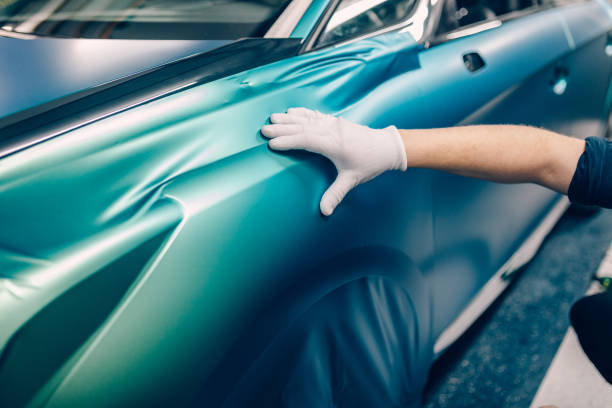Custom car wraps have exploded in popularity thanks to their ability to totally transform a vehicle with eye-catching graphics and colors. But before diving into a wrap makeover for your ride, an important question needs answering – what will it cost? Car wrap cost can range widely depending on several key factors. By understanding how car wrap pricing works, you can get the best value for your project.
Vehicle Size and Surface Area
Like a can of paint, car wraps are priced primarily based on the total square footage of material needed to cover your vehicle. The larger the car, the greater the surface area that needs wrapping, and thus the higher the cost. Smaller cars like coupes and sedans require the least amount of vinyl and will be the most affordable wraps. Larger trucks and vans with expansive surfaces will sit at the higher end of the price spectrum.
For standard vehicles, expect a starting range of $2000-$6000 for a full wrap. But the price tag can quickly escalate for extra large trucks, semi trucks and RVs that may require $10,000 or more in vinyl. When getting a quote, provide your exact vehicle make and model so the shop can calculate the square footage they’ll need. Knowing your surface area is key to determining accurate pricing.
Graphic Design Complexity
The complexity of your wrap’s graphics will also affect the price. Simple vinyl coats in solid colors or with basic geometric shapes will be the most budget-friendly options. If you want multi-color designs, complex patterns, digitally printed images or media graphics, expect to pay more for the additional design time and customization.
Shops often charge design fees hourly, so the more detailed and intricate the graphics, the more hours it will take to design and print, driving up wrap costs. Be sure to communicate the extent of your graphics to get an accurate quote.
Vinyl Type and Quality
Car wrap materials range from 1-5 years in durability. Cheaper, thinner 1-2 year calendered vinyl will have the lowest material costs but need replacing sooner. Opt for high-performance 3-5 year cast vinyl wraps for maximum longevity and cost efficiency. Be wary of dirt cheap wraps that seem too good to be true – the inferior vinyl won’t last as long or apply as smoothly.
Though pricier, going for supreme-grade vinyl that offers exceptional conformability on curved surfaces, and strong resistance to abrasions and the elements can save you money in the long run. A quality wrap material designed for vehicle applications will endure for years with proper care.
Specialty Wrap Styles
Beyond standard gloss colors and finishes, some specialty wrap styles will boost your cost if you wish to incorporate them. Some examples include:
- Chrome/Mirror wraps: Require precise application for a smooth mirror-like reflective surface.
- Matte wraps: Use a specialized non-gloss vinyl resin.
- Textured wraps: Emboss with textures like carbon fiber, wood grain or abstract 3D patterns.
- Full photo or graphic printed wraps: Print custom graphics edge-to-edge over the entire vehicle.
- Paint protection film: Clear coat vehicle wraps help protect paint from scratches and chips.
These specialty wraps involve more complex materials, printing and installation, hence the higher price tag.
Installation Skill Level
An inexperienced wrap installer is likely to make mistakes that either waste expensive vinyl material or produce a lower quality end result. Professional installers who have mastered precise wrap techniques may charge more for their labor – but deliver a flawless wrap job that’s built to last. Factoring a few extra dollars for a reputable shop with expert installers is wise to ensure your graphics apply smoothly and professionally.
Location and Market Rates
Like any service industry, location will impact average rates as well. Larger metropolitans with a higher cost of living will see pricier shop rates. Make sure to research prices locally rather than nationwide averages to get a more accurate price estimate for your area’s market.
Conclusion
Calculating an exact dollar figure for a car wrap requires considering numerous factors from the vehicle itself to the complexity of graphics to the installer’s skill level. While wraps may sound expensive compared to paint, keep in mind their longevity and removability make them a cost-effective way to customize your car in the long run. By understanding what determines wrap pricing, you can plan your budget accordingly and work with your chosen shop to create a stunning exterior revamp for your ride.



